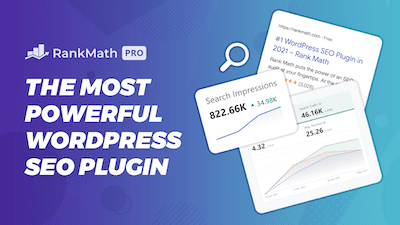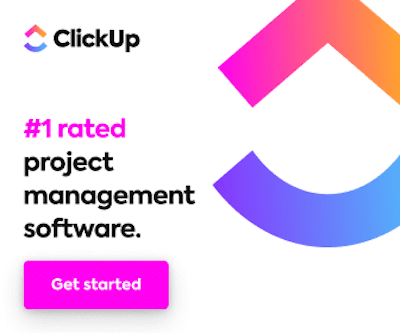Backlinks are an essential aspect of search engine optimization (SEO) that can have a significant impact on the visibility and ranking of a website. In simple terms, a backlink is a link that points from one website to another.
Backlinks are crucial because they signal to search engines that other websites consider your content valuable and trustworthy. As a result, search engines are more likely to rank your website higher in search results, leading to increased traffic and potential customers.
In this post, we will explore the importance of backlinks, how they work, and how to obtain them for your website.
What are backlinks?
At its core, a backlink is a link that originates from a different website and directs traffic to your own. Think of it as a referral from one site to another. When someone else links to your site, they’re vouching for your content and saying, “hey, this site is worth checking out.”
Now, you might think, “okay, that’s nice and all, but why do I care about backlinks?” Well, let me tell you, they’re a big deal.
Search engines like Google use backlinks as a key factor in determining the credibility and authority of a website. Essentially, the more high-quality backlinks your site has, the more likely it will appear at the top of search results.
But don’t get me wrong, not all backlinks are created equal. It’s not just about the number of links but also the quality. For example, a backlink from a well-respected, authoritative site in your niche will hold more weight than a random link from a low-quality site.
So, to sum it up, backlinks are like votes of confidence for your site, and they can have a big impact on your search engine rankings. But remember, it’s not just about getting as many links as possible; it’s about getting high-quality links from reputable sources.
If a big, established website gives you a backlink, Google will say,
Hold up, BBC, New York Times – these guys are giving a vote of confidence to this website. They’re essentially saying, ‘Hey, this content is trustworthy and credible enough to feature on our massive platform with millions of visitors every month.’ Well then, this website must be legit. Let’s give it a boost in the rankings.”
So that’s the basics of how that works.
How do you get backlinks?
There are a few ways you can get backlinks
1. Write amazing content and wait
First off, you can simply let your killer content do the talking. If you create high-quality, informative content, people will naturally want to link to it. For example, let’s say you write an article on how to replace a bicycle tire. If it’s helpful and informative, someone else might write an article on the most important bike parts and include a link to your tire-changing tutorial.
2. Collaborate with other bloggers.
Collaboration is key when it comes to building backlinks. One effective approach is to reach out to other websites in your niche and let them know about your content. But don’t just beg for a link – instead, focus on how your content can provide value to its readers.
For example, you could send an email like this: “Hey there! I recently wrote an article on [topic], and I noticed that you wrote a similar post. I think my article provides some unique insights that your readers might be interested in, and I’d love to collaborate with you. If you’re interested, here’s a link to my post. Let me know if you think it could be a good fit for your audience.”
By framing it as a collaboration rather than a one-sided request, you’re more likely to get a positive response. And if the other site does decide to link to your content, it’s a win-win situation for both of you – they get to provide their readers with valuable information, and you get a high-quality backlink to boost your search engine rankings.
3. Broken link outreack
There are tools out there like Ahrefs and Broken Link Checker that can help you identify broken links on relevant sites. Then, you can reach out to the site owner and say something like, “Hey, I noticed you have a broken link on your site. I have a piece of content that could be a great replacement. Here’s a link – feel free to check it out and let me know if you’re interested in updating the broken link.”
You’re more likely to get a positive response by providing a solution to a problem. And if the other site adds your link, it’s a win-win for both of you – they get to fix a broken link and provide their readers with valuable information, and you get a high-quality backlink to boost your SEO efforts.
4. Ask for links (backlink outreach)
But what if your content is great, but no one seems to be linking to it? That’s where outreach comes in. You can reach out to other websites in your niche and ask if they’d be interested in linking to your content. Now, Google doesn’t want you to pay for links, but there are ways to collaborate without breaking the rules. For example, you could say, “Hey, I noticed you wrote an article on this topic, and I have a post that covers some additional points. Would you be interested in checking it out and maybe linking to it if you find it useful?”
I’ll be honest: backlink outreach can be a bit of a grind. Some companies even specialize in it as a service. And sometimes, despite your best efforts, people won’t be interested in linking to your content. That’s just the way it goes sometimes. Remember to always play by Google’s rules and avoid shady tactics. In the long run, it’s just not worth the risk.
When it comes to backlinks, there’s a whole world of opportunity out there. Some companies specialize in backlink outreach and are damn good at it. They know how to find the right sites to reach out to and how to craft pitches that get results.
But let’s be real – not everyone will be interested in adding your link to their website. Sometimes people are too busy or don’t see the value in it. And that’s okay. It’s not worth resorting to shady tactics to try and force the issue.
That’s why it’s important always to wear a white hat, as they say. Stick to the rules and focus on providing value to your audience.
Watch out for low-quality guest posting services
Now, listen up, folks. I’m about to drop some truth bombs on you about low-quality guest posting services. Let me tell you; there are a lot of shady characters out there who will stop at nothing to get a link on your site – even if it means producing terrible, low-quality content.
I’ve been there, my friends. I’ve received countless emails from these guest posting services, and some of the content they send is just plain weird. I’m talking one-paragraph articles with a link every other sentence. It’s not a good look and can hurt your site in the long run.
That’s why it’s important to be wary of any service that refuses to provide you with a sample article or guest post. In addition, you need to ensure that the content you’re hosting on your site is high-quality and valuable to your readers. Otherwise, it will turn people off and harm your SEO efforts.
But don’t get me wrong – guest posting can be a powerful tool if done correctly. If you have a talented writer willing to produce a great piece of content in exchange for a link, it can be a win-win for both parties.
So there you have it, folks – the truth about low-quality guest posting services. Always be on the lookout for red flags, and don’t be afraid to say no to subpar content. And if you enjoyed this little SEO rant, don’t forget to hit that like button and subscribe for more content like this.
Are you a visual learner? Then, check out my video below, titled “What Is SEO? (For Beginners),” from my YouTube channel, as I show you all this firsthand.
Frequently asked questions (FAQ)
Do you still have questions? Below are some of the most commonly asked questions about backlinks.
What are backlinks, and why are they important for SEO?
Backlinks are links from other websites that point to your website. They are important for SEO because they signal to search engines that other websites consider your content valuable and relevant.
Search engines use backlinks as a ranking factor in their algorithms, so having high-quality backlinks can help improve your website’s visibility and ranking in search engine results pages (SERPs).
How can I get high-quality backlinks to my website?
There are several ways to get high-quality backlinks to your website, including creating high-quality content that others want to link to, reaching out to other websites to request links, guest posting on other websites, and participating in online communities and forums related to your industry.
It’s important to focus on building a diverse portfolio of backlinks from authoritative and relevant websites.
Can backlinks be harmful to my website?
Yes, backlinks can harm your website if they come from low-quality or spammy websites. Google and other search engines penalize websites for manipulating link-building practices, such as buying links or participating in link farms.
It’s important to focus on building high-quality backlinks from authoritative and relevant websites rather than trying to manipulate search engine rankings with low-quality links.
Conclusion
That concludes this article. What do you think? Let me know in the comments below (I read and reply to every comment). If you found this helpful, check out my full blog and subscribe to my YouTube channel. Thanks for reading!








